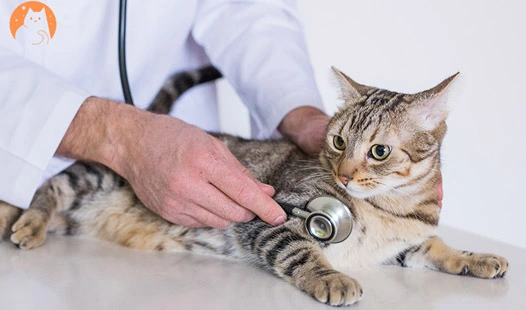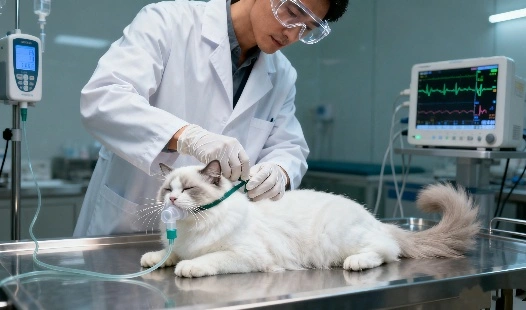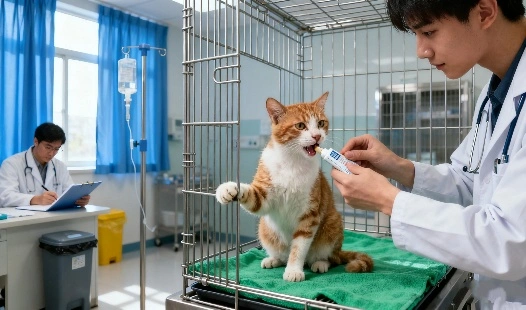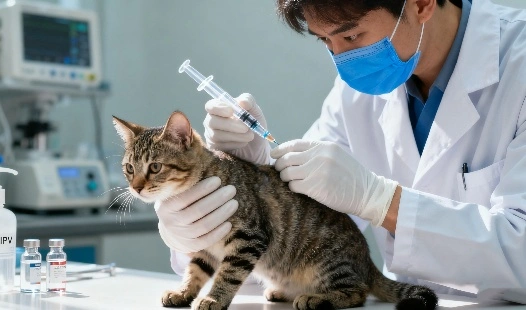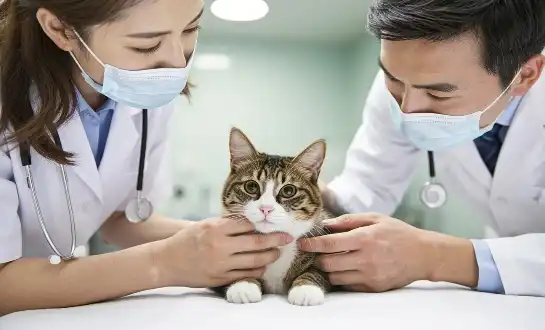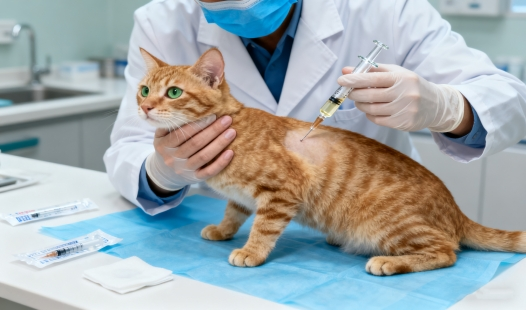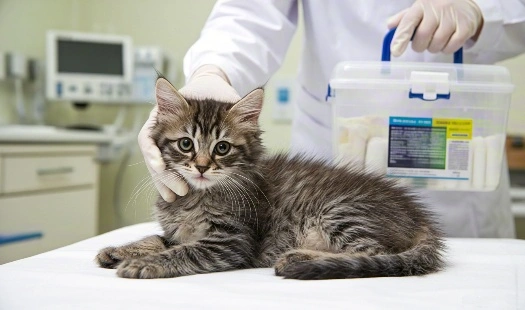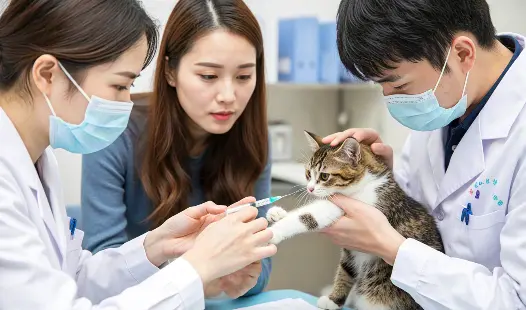What are the known side effects of GS-441524 in cats?
Common side effects of GS-441524 in cats
GS-441524 injection has emerged as a promising treatment for feline infectious peritonitis (FIP) in cats. While it has shown remarkable efficacy, it's crucial for pet owners and veterinarians to be aware of potential side effects. This article will explore the known side effects of GS-441524 in cats, how to manage them, and the long-term safety profile of this treatment.
|
|
|
Common side effects of GS-441524 in cats
As with any medication, GS-441524 can cause side effects in some cats. It's important to note that not all cats will experience these side effects, and many may tolerate the treatment well. However, being aware of potential adverse reactions can help pet owners and veterinarians monitor cats more effectively during treatment.
Injection site reactions
One of the most commonly reported side effects of GS-441524 Injection is localized reactions at the injection site. These reactions may include:
- Pain or discomfort
- Swelling
- Redness
- Formation of small nodules or lumps
These reactions are typically mild and resolve on their own within a few days. However, in some cases, they may persist or become more severe, requiring additional attention.
Gastrointestinal disturbances
Some cats may experience gastrointestinal side effects during treatment with GS-441524. These can include:
- Decreased appetite
- Nausea
- Vomiting
- Diarrhea
In most cases, these symptoms are mild and transient. However, if they persist or become severe, it's essential to consult with a veterinarian.
Lethargy and weakness
Some cats may experience temporary lethargy or weakness during the initial stages of treatment. This is often due to the body's response to the medication and the ongoing battle against the FIP virus. As the treatment progresses and the cat's condition improves, these symptoms typically resolve.
 |
 |
 |
How to manage adverse reactions during treatment
While side effects can be concerning, there are several strategies to manage them effectively and ensure the best possible outcome for cats undergoing GS-441524 treatment.
Proper injection technique
To minimize injection site reactions, it's crucial to use proper injection techniques. This includes:
- Rotating injection sites
- Using the correct needle size
- Administering the injection slowly
- Massaging the area gently after injection
Veterinarians should provide thorough instructions to pet owners on how to administer GS-441524 Injection correctly to reduce the risk of complications.
Supportive care
For cats experiencing gastrointestinal disturbances, supportive care can be beneficial. This may include:
- Offering small, frequent meals
- Providing easily digestible food
- Ensuring adequate hydration
- Administering anti-nausea medications if prescribed by a veterinarian
Regular monitoring
Close monitoring of cats undergoing GS-441524 treatment is essential. This includes:
- Regular veterinary check-ups
- Blood tests to assess organ function and overall health
- Monitoring weight and appetite
- Observing for any new or worsening symptoms
Long-term safety profile of GS-441524
As GS-441524 is a relatively new treatment for FIP in cats, long-term safety data is still being collected. However, initial studies and clinical experiences have provided some insights into its safety profile.
Renal effects
Some studies have reported mild, non-progressive renal toxicity in cats treated with GS-441524. This underscores the importance of regular kidney function monitoring during and after treatment. In most cases, these effects appear to be reversible and do not progress to overt renal disease.
Hepatic function
Unlike some other antiviral medications, GS-441524 has not been associated with significant liver toxicity in cats. However, liver function should still be monitored as part of routine blood work during treatment.
Long-term efficacy
While not directly related to safety, it's worth noting that the long-term efficacy of GS-441524 in treating FIP has been promising. Many cats that complete the full course of treatment remain in remission for extended periods, with some considered cured of the disease.
Conclusion
GS-441524 has revolutionized the treatment of FIP in cats, offering hope for a previously fatal disease. While side effects can occur, they are generally manageable and often outweighed by the potential benefits of treatment. As with any medical intervention, the decision to use GS-441524 should be made in consultation with a veterinarian, considering the individual cat's condition and overall health status.
Ongoing research and clinical experience continue to refine our understanding of GS-441524's safety profile and optimal use in feline patients. As more data becomes available, treatment protocols may be further optimized to minimize side effects while maximizing efficacy.
|
|
|
|
FAQ
1. Can GS-441524 be used in kittens?
GS-441524 has been used successfully in kittens with FIP. However, dosing and monitoring may need to be adjusted based on the kitten's age and weight. Always consult with a veterinarian experienced in FIP treatment before administering GS-441524 to kittens.
2. How long does GS-441524 treatment typically last?
The standard treatment course for GS-441524 is typically 84 days (12 weeks). However, some cases may require longer treatment periods, especially if neurological or ocular involvement is present. The exact duration should be determined by a veterinarian based on the cat's response to treatment and clinical progress.
3. Are there any contraindications for using GS-441524 in cats?
While GS-441524 is generally well-tolerated, it may not be suitable for all cats. Cats with severe kidney or liver disease may require closer monitoring or dose adjustments. Pregnant or lactating cats have not been extensively studied, so the use of GS-441524 in these populations should be carefully considered. Always consult with a veterinarian to determine if GS-441524 is appropriate for your cat's specific situation.
Fight FIP Now with GS-441524
Are you a veterinary professional seeking high-quality GS-441524 for your feline patients? Look no further than BLOOM TECH, your trusted GS-441524 Manufacturer. With our state-of-the-art GMP-certified facilities and rigorous quality control processes, we ensure the highest standards of purity and efficacy for our GS-441524 products.
Our team of experts is dedicated to supporting veterinary professionals in their fight against FIP. We offer competitive pricing, reliable logistics, and comprehensive product documentation to meet all your needs. Whether you're a veterinary clinic, research institution, or pharmaceutical manufacturer, BLOOM TECH has the expertise and resources to support your requirements.
Don't compromise on quality when it comes to treating FIP. Choose BLOOM TECH for your GS-441524 supply. Contact us today at Sales@bloomtechz.com to learn more about our products and how we can support your practice in providing the best care for feline patients.
References
- Pedersen, N. C., et al. (2019). Efficacy and safety of the nucleoside analog GS-441524 for treatment of cats with naturally occurring feline infectious peritonitis. Journal of Feline Medicine and Surgery, 21(4), 271-281.
- Murphy, B. G., et al. (2020). Treatment of cats with feline infectious peritonitis with a novel nucleoside analog GS-441524. Animals, 10(8), 1424.
- Dickinson, P. J., et al. (2020). Antiviral treatment using the adenosine nucleoside analogue GS-441524 in cats with clinically diagnosed neurological feline infectious peritonitis. Journal of Veterinary Internal Medicine, 34(4), 1587-1593.
- Addie, D. D., et al. (2020). Feline infectious peritonitis. ABCD guidelines on prevention and management. Journal of Feline Medicine and Surgery, 22(11), 1047-1056.

Echo
9 years of experience in chemical articles; Doctoral degree; Organic Chemistry major; R&D-4 Dept; Technology support; R&D engineer
Anticipating your Business & Technology support inquiry
Please send us the products that interest you, and we will provide you with one-on-one service
Recommended Blog
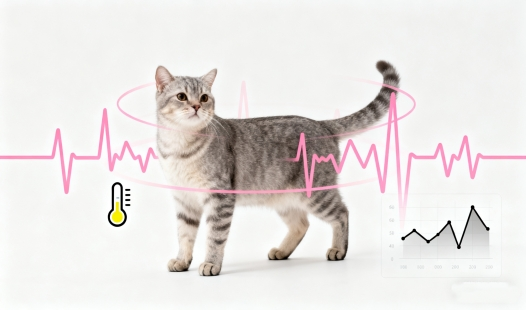
How is GS-441524 administered, and what are its side effects?
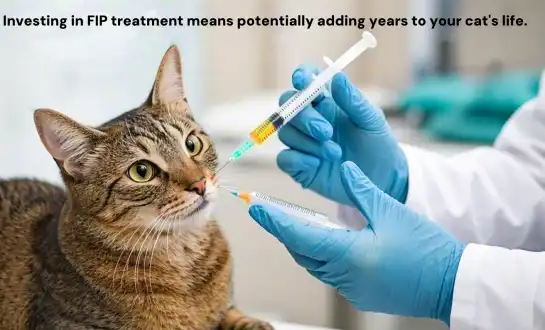
Is FIP Treatment Too Expensive? How to Budget for GS-441524?







